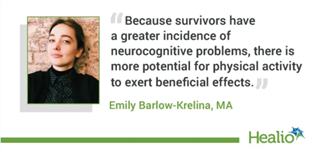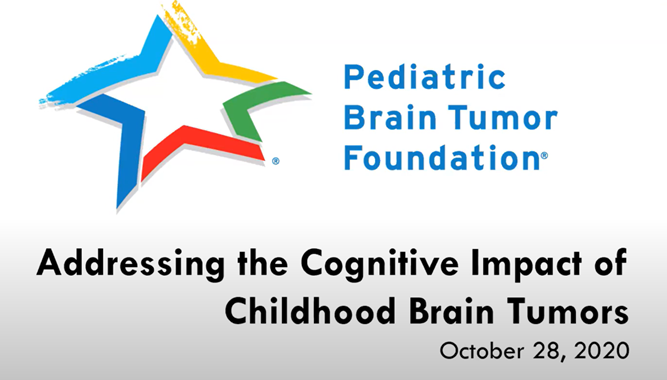
Physical Activity May Improve Cognition for Survivors
Because survivors have a significant incidence of neurocognitive problems, physical activity has more potential to exert beneficial effects. -Emily Barlow-Krelina, MA.

Because survivors have a significant incidence of neurocognitive problems, physical activity has more potential to exert beneficial effects. -Emily Barlow-Krelina, MA.
Adult survivors of childhood cancer who report more consistent physical activity have fewer neurocognitive problems and considerable improvements in these concerns many years after treatment.

Daily living skills are our behaviors to succeed in independent everyday life. These skills are necessary to make healthy choices and meet our basic needs.

Cognitive development is important for any child, but it can be especially crucial if your child suffers from a behavioral or learning challenge. If you

This is a presentation about the cognitive impacts of pediatric brain tumors and what you can do to advocate for and assist your child.

Survivors may be at risk of cognitive decline throughout their lives. Practitioners should consider neurocognitive surveillance for all survivors despite a lack of neurocognitive impairments

Executive function and self-regulation skills provide critical support for learning and development. These skills have three fundamental dimensions: working memory, inhibitory control, and cognitive flexibility.

Many people need help with executive functioning skills such as managing time, staying organized, and completing tasks. It can be frustrating and overwhelming. However, there

Executive functions develop in the prefrontal cortex, a part of the brain that usually doesn’t completely mature until around 25 years old. Treatment can affect

The Childhood Cancer Survivor Study found that, while most survivors do not have chronic pain, certain groups of survivors are more likely to have pain. This